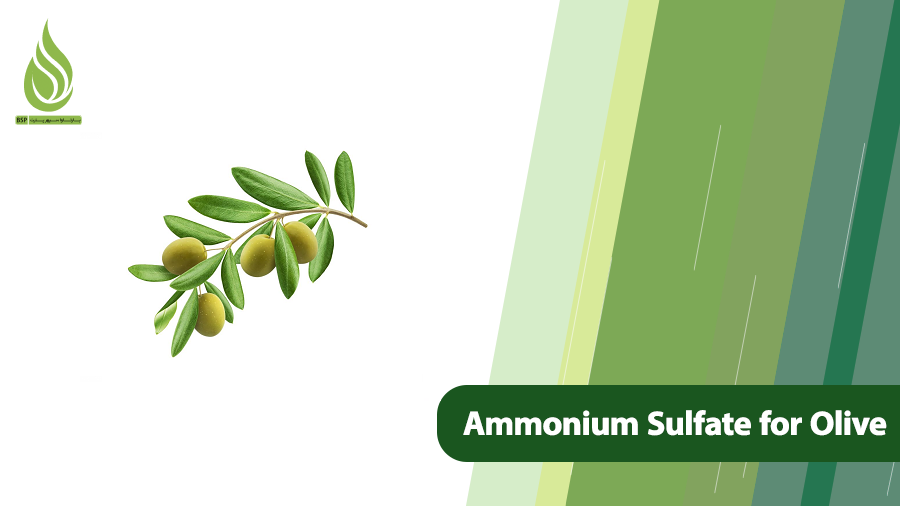
The Impact of Ammonium Sulfate Usage for Olive Cultivation
Olive cultivation is a cornerstone of agriculture in many regions around the world, particularly in the Mediterranean basin and the Middle East, where olive trees thrive in warm, semi-arid climates. These resilient trees produce not only valuable fruit but also high-quality olive oil, a staple in global diets known for its health benefits. However, achieving optimal yields and quality requires careful attention to soil nutrition. Among the various fertilizers available, ammonium sulfate stands out as a key player due to its dual provision of nitrogen and sulfur, essential nutrients that support robust growth and enhance fruit production. Here, we explore the role of ammonium sulfate in olive farming and provide a comprehensive guide for growers.
In regions like Iran, Turkey, and Spain, major olive-producing countries, farmers face challenges such as alkaline soils and nutrient deficiencies that can limit tree performance. Ammonium sulfate addresses these issues effectively, promoting balanced vegetative growth and improving oil content in olives. As global demand for olive products rises, understanding how to integrate this fertilizer into sustainable farming practices becomes crucial. Whether you’re managing a small grove or a large commercial orchard, incorporating ammonium sulfate can lead to healthier trees and higher returns.
What is Ammonium Sulfate and Why is it Suitable for Olive Trees?
Ammonium sulfate is a mineral fertilizer composed of twenty-one percent nitrogen and twenty-four percent sulfur, making it a versatile source of these vital elements for plant growth. It’s produced through the reaction of ammonia and sulfuric acid, resulting in white crystalline granules that dissolve quickly in soil. This solubility allows for rapid nutrient uptake by olive tree roots, which is particularly beneficial in the dry, calcareous soils common in olive-growing areas worldwide.
Olive trees (Olea europaea) are hardy plants adapted to Mediterranean and Middle Eastern environments, where soils often have high pH levels, typically above seven, leading to nutrient lockup. Nitrogen is essential for chlorophyll production, which drives photosynthesis and promotes green, healthy foliage. Sulfur, on the other hand, aids in the formation of proteins and enzymes, contributing to oil synthesis in olives. Olive trees require moderate nitrogen inputs, and ammonium sulfate’s acidifying effect helps lower soil pH slightly, improving the availability of micronutrients like iron and zinc in alkaline soils.
In the Middle East, such as in Iran and Jordan, olive cultivation covers vast semi-arid lands, and ammonium sulfate is favored over other nitrogen sources like urea because it resists leaching in sandy soils and provides sulfur, which is often deficient in these regions. Sulfur deficiencies are increasing due to reduced atmospheric deposition from cleaner air policies, making ammonium sulfate an increasingly important tool for maintaining soil fertility in olive groves. We suggest you take a look at our guide to compare ammonium sulfate and urea.
Compared to nitrate-based fertilizers, ammonium sulfate offers a slower release of nitrogen, reducing the risk of excessive vegetative growth that can diminish fruit set. This balance is critical for olives, as over-fertilization can lead to biennial bearing patterns, where trees alternate between high and low yields. Also, you need to manage the use of ammonium sulfate to prevent groundwater pollution. In practice, ammonium sulfate’s compatibility with drip irrigation systems, common in intensive olive farming in Spain, allows for precise application, minimizing waste and environmental impact.
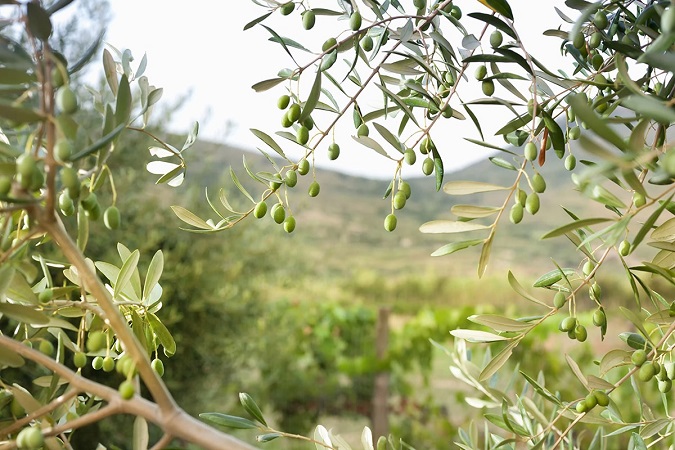
Benefits of Using Ammonium Sulfate in Olive Groves
The advantages of ammonium sulfate extend beyond basic nutrition, offering multiple benefits that enhance olive tree health and productivity. One primary benefit is promoting balanced vegetative growth and leaf greening. The nitrogen component boosts chlorophyll levels, leading to vibrant, photosynthetically active leaves that produce more carbohydrates for fruit development. Applying ammonium sulfate in winter or early spring can increase shoot growth by 8-20 inches annually, which is ideal for mature olive trees.
Sulfur from ammonium sulfate plays a pivotal role in elevating olive oil content. Studies conducted in Turkey and Greece demonstrate that sulfur activates enzymes involved in lipid synthesis, resulting in fruits with higher oil percentages, often up to twenty to twenty-five percent more than those from nitrogen-only fertilizers. This is especially relevant in the Middle East, where olive oil quality is a key economic driver. For instance, in Iranian olive groves, where soils are predominantly alkaline, ammonium sulfate reduces pH by half to one unit over time, unlocking micronutrients and preventing chlorosis, a common issue causing yellowing leaves.
Another key advantage is improved resistance to environmental stresses. Olive trees in arid regions like Syria and Lebanon often face drought and salinity. Sulfur enhances the tree’s ability to withstand these conditions by strengthening cell walls and boosting antioxidant production. Olive trees fertilized with ammonium sulfate showed fifteen to twenty percent greater tolerance to water stress compared to those using urea alone.
Ammonium sulfate also minimizes nutrient loss through leaching, a problem in sandy soils prevalent in parts of California and Australia, major global olive producers. Unlike urea, which can volatilize into ammonia gas, ammonium sulfate binds to soil particles, ensuring more nitrogen reaches the roots. This efficiency is vital for sustainable farming, reducing the need for frequent applications and lowering costs.
In terms of environmental benefits, ammonium sulfate supports eco-friendly practices. Its lower volatility compared to other nitrogen fertilizers reduces greenhouse gas emissions, aligning with global sustainability goals. In the Middle East, where water scarcity is acute, combining ammonium sulfate with fertigation systems optimizes resource use.
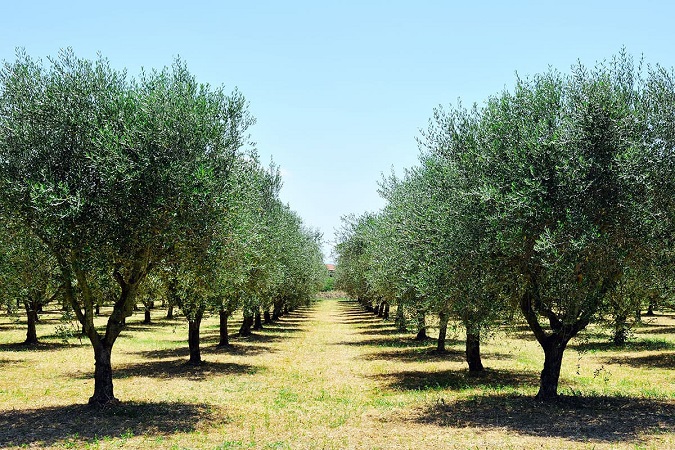
Impact on Olive Oil Yield and Quality
Ammonium sulfate significantly influences both the quantity and quality of olive oil. Trees treated with this fertilizer produce fruits with higher oil yields, often increasing extractable oil by 10-15% per kilogram of olives. This boost comes from nitrogen’s role in enlarging fruit size and sulfur’s contribution to fatty acid formation, essential for premium extra virgin olive oil.
Quality-wise, ammonium sulfate enhances flavor and aroma profiles. Sulfur-enriched olives yield oils with improved polyphenol content, which imparts antioxidant properties and a longer shelf life. In Middle Eastern varieties like the Chemlal in Algeria, irrigation combined with ammonium sulfate maintained superior physicochemical properties, including better fatty acid balance and antibacterial activity.
In high-density orchards in Spain and Italy, ammonium sulfate helps mitigate the “off-year” yield drops in alternate-bearing cultivars. By stabilizing nitrogen levels, it ensures consistent flowering and fruit set. Ammonium nitrate (similar to sulfate forms) at one to two kg N per tree increased yields by up to fourty percent without compromising oil quality.
However, over-application can lead to excessive nitrogen, reducing oil quality by diluting flavors. Balanced use, guided by soil tests, is key to maximizing benefits.
Soil Testing Before Application
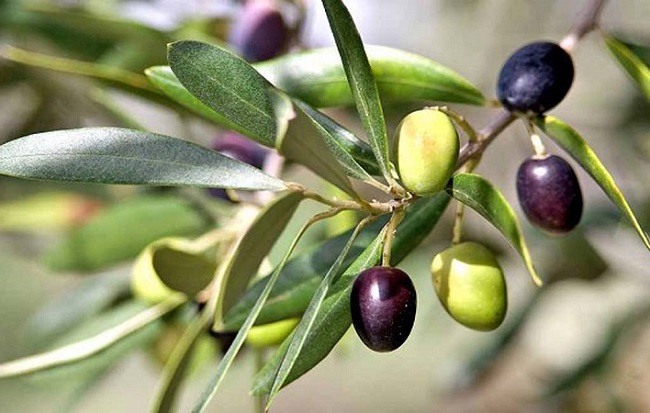
Before applying ammonium sulfate, conducting a soil test is essential to avoid imbalances. Many farmers in the Middle East rely on empirical methods, but scientific testing reveals precise nutrient levels, pH, and salinity. Labs like those affiliated with the University of California recommend sampling from the top 18 inches of soil around the drip line in July for accurate results.
Tests determine if nitrogen or sulfur is deficient; olives need half to one and a half kilograms of N per tree annually. High existing nitrogen might cause excessive growth and reduced fruiting, while in acidic soils (pH below six), ammonium sulfate could exacerbate issues. In alkaline Middle Eastern soils, it helps, but monitoring prevents over-acidification.
Combining with other tests, like leaf analysis, provides a holistic view. For instance, if iron deficiency is detected, ammonium sulfate’s pH-lowering effect can enhance uptake.
How to Use Ammonium Sulfate in Olive Farming
Application rates vary by tree age and soil type. For young trees (under five years), use two hundred to five hundred grams per tree; mature ones (over fifteen years) require two to three kg. In the Middle East, apply in early spring before flowering for best results.
Methods include surface broadcasting, soil incorporation during tilling, or fertigation. In drip-irrigated groves in Israel, dissolve and apply via water for uniform distribution. For rain-fed systems in Turkey, apply in winter to leverage natural moisture.
Adjust based on climate, reduce in high-rainfall areas to prevent leaching. Worldwide, integrate with phosphorus or potassium for synergy.
Important Tips for Application
- Dosage Precision: Overuse leads to imbalances; stick to soil test recommendations.
- pH Monitoring: Avoid in already acidic soils; use lime if needed to balance.
- Post-Application Irrigation: Light watering helps nutrients reach roots.
- Combination with Other Fertilizers: Pair with potassium sulfate for fruit quality or organic matter for soil structure.
- Regular Monitoring: Check tree health and soil annually.
Purchasing High-Quality Ammonium Sulfate
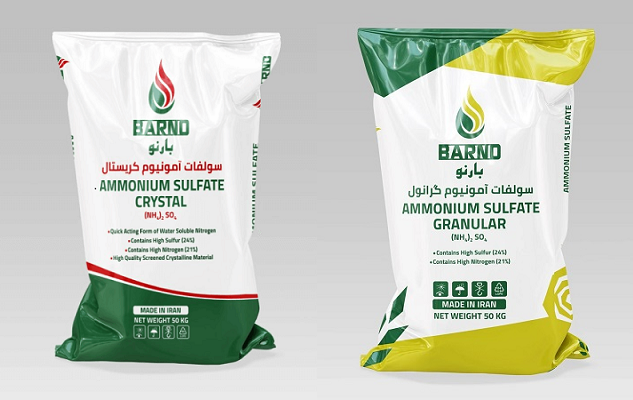
For bulk purchases, source from reputable suppliers offering crystalline, granular, or powdered forms. In the U.S. and the Middle East, look for products meeting agricultural standards. Barsava Sepehr Part specializes in producing high-purity ammonium sulfate fertilizer, ensuring optimal results for Middle Eastern olive growers.
Recent Research and Developments
Studies like those in Science of Food explored waste integration with fertilizers, while MDPI research confirmed ammonium sulfate’s role in stressed olives, improving nutrient uptake by twenty percent. Innovations include blended formulas for precision agriculture.
Conclusion
Ammonium sulfate is indispensable for olive cultivation, offering nutrient balance, stress resistance, and quality enhancement. By following best practices and leveraging reliable sources, growers worldwide can achieve sustainable, high-yield orchards.
